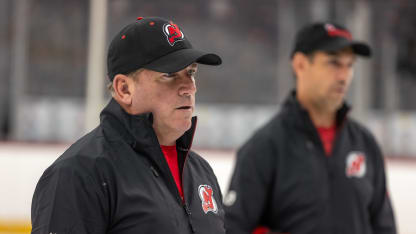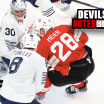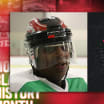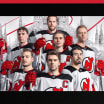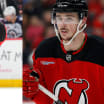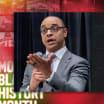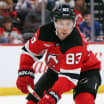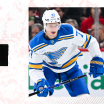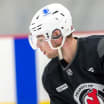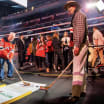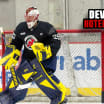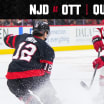New Jersey Devils Official Podcast
·
Mark Recchi | Speak of the Devils
Mark Recchi sat in a chair with a glass of wine in his hand and the Pacific Ocean in front of him. Recchi, who was joined by then Boston Bruins teammate Shawn Thornton, was letting the moment sink in. He knew that the next game he played in the National Hockey League - Game 7 of the 2011 Stanley Cup Final - would be his last.
"I'd known riding down the end it was probably going to be it," said Recchi, who invited Thornton to join him that fateful evening. "It was a beautiful setting. We had a view of the Pacific Ocean and sipped on a glass of wine. I was at peace with it. I knew that was going to be it."
The following day, June 15, the 43-year-old pulled a jersey over his shoulder pads for the 1,842nd and final time in his career. On the ice, he helped setup Brad Marchand's second-period goal to give Boston a critical 2-0 lead against Vancouver. It would be his final point.
Marchand's second goal of the game would be an empty-net that sealed a 4-0 Game 7 victory for Boston, helping Recchi raise the holy chalice for the third time in his career.
"To end up winning was the icing on the cake," recalled the Kamloops native. "We had a great group in Boston and had been through a lot in the two-and-a-half years I was there together. To be able to do it in my home province (British Columbia). My brothers were there. It was a special night."
Mark Recchi: From the Ice to the Bench | FEATURE
It's been 10 years since Mark Recchi played his last game, and he has transitioned from the ice to the bench
